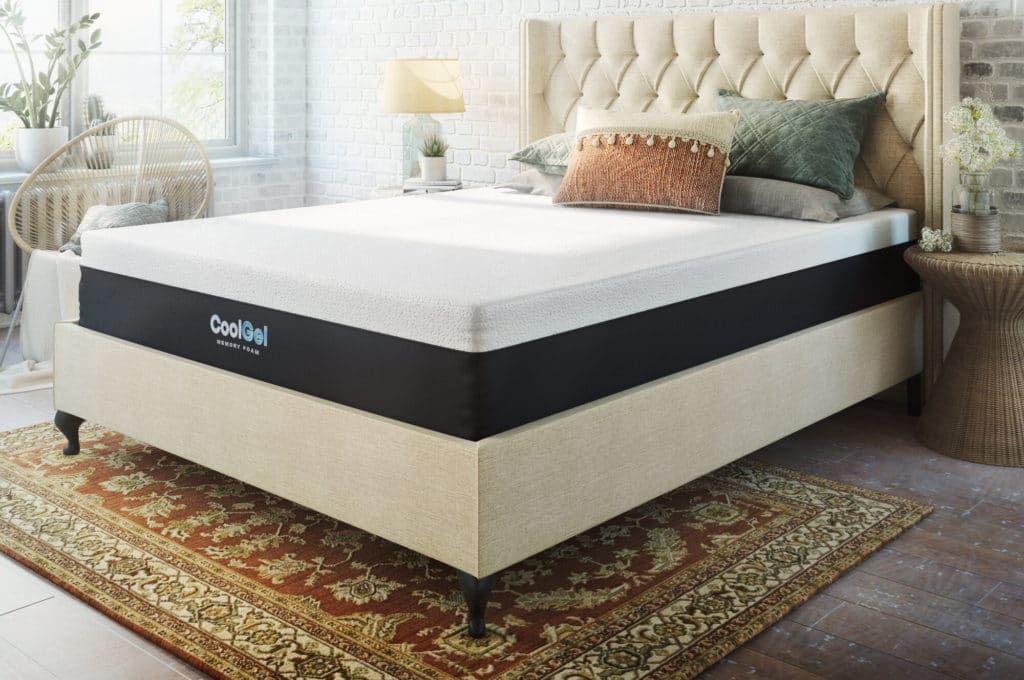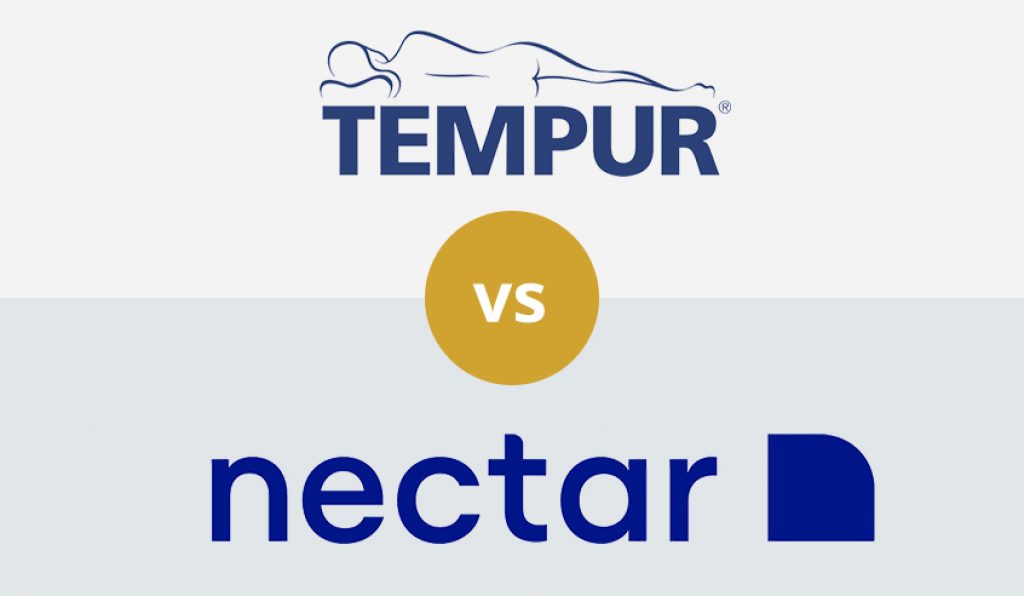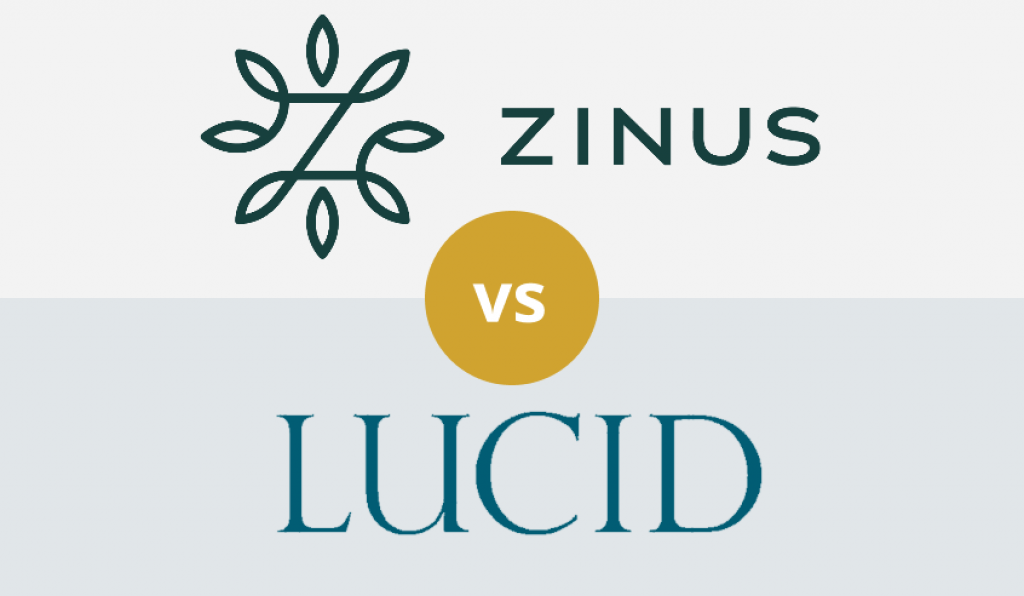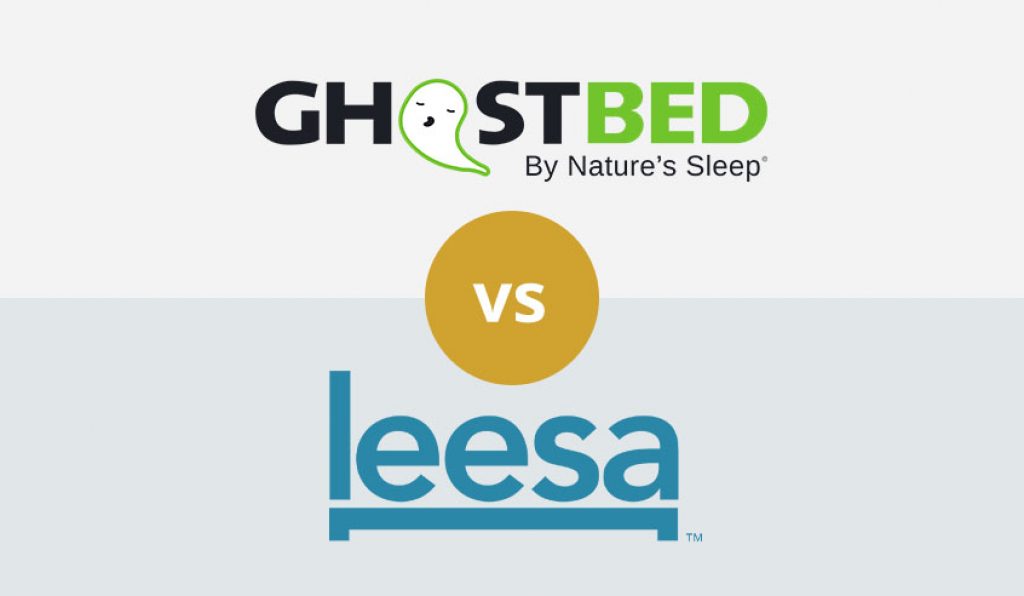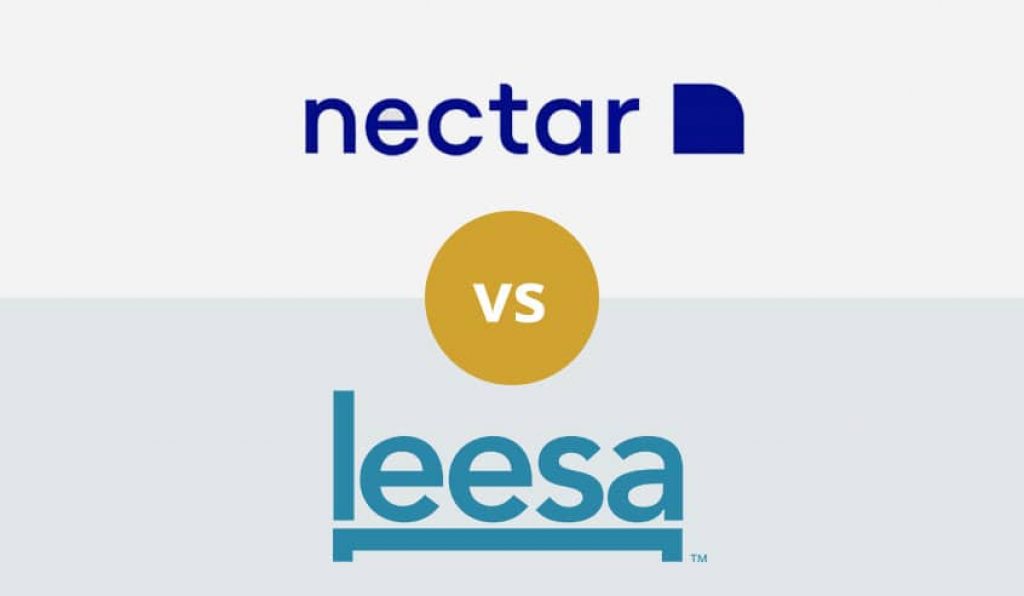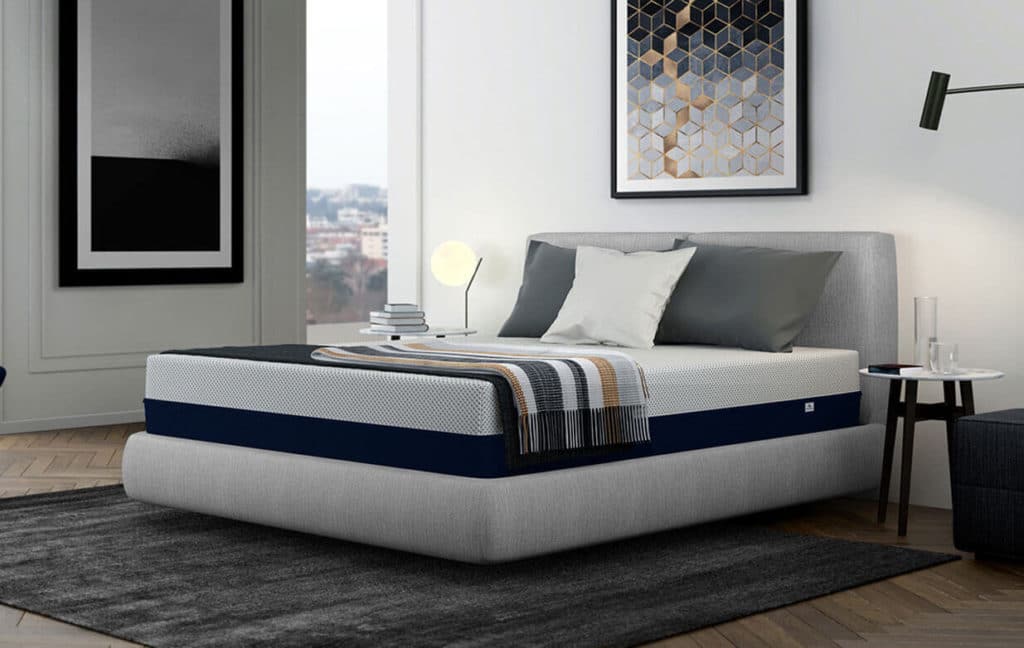

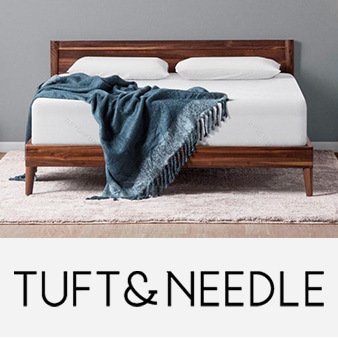
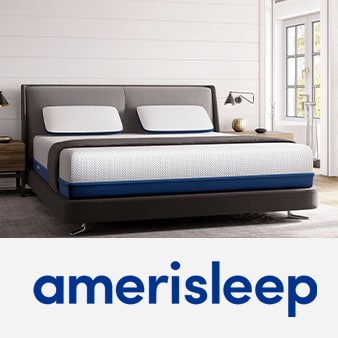
A good mattress is crucial for getting the all important rest and relaxation. In recent years, memory foam has gone from being a novelty to a desirable alternative to the traditional spring bed. Memory foam is hypoallergenic and discourages dust mites, but it also provides pressure point relief and supports proper spine alignment to avoid waking up stiff and sore. Two brands who are leading the market for memory foam mattresses are Tuft & Needle and Amerisleep. So, before you consider buying your next mattress, here we’ll perform a Tuft & Needle vs Amerisleep comparison to help you make an informed purchase decision.
The Tuft & Needle brand was launched in 2012 as a consequence of a lousy mattress shopping experience. The brand now offers mattresses, pillows, and other bed accessories. The Tuft & Needle mattresses are designed with medium firm foam, and offer a ten-year warranty despite the more modest price tag.
Amerisleep is a more established brand and the company aims to lead the transformation of the mattress industry. The Amerisleep mattresses are made to offer medium support with an ecofriendly VPF process to manufacture all foam for the products that are completely produced in the U.S. While the Amerisleep mattress is costlier, the brand does offer a more extensive warranty covering 20 years from the date of purchase.
| Tuft & Needle | Amerisleep |
|
|
| VIEW ON AMAZON | VIEW ON AMAZON |
| Tuft & Needle | Amerisleep | |
| Type | Foam | Foam |
| Firmness | Medium firm (6.5) | Medium (5.5) |
| Thickness | 10″ | 12″ |
| Weight | 71 lbs | 96 lbs |
| Sleep trial | 100 nights | 100 nights |
| Warranty | 10 years | 20 years |
| Price | $595 (Queen) | $1,399 (Queen) |
| Certification | Greenguard Gold Standard 100 by OEKO-TEX Certi-PUR-US |
CertiPUR-US Meets Clean Air Act standards |
| Tuft & Needle | Amerisleep | |
| Support core | 7″ 1.8 PCF HD polyfoam | 2″ 1.65 PCF polyfoam 7″ 1.8 PCF polyfoam |
| Comfort layers | 3″ 2.8 PCF polyfoam | 3″ 4 PCF memory foam |
| Cover | Micro polyamide and polyester | 77% Polyester 21% Celliant 2% Spandex |
While the Tuft & Needle has a 10” thickness, the Amerisleep has an additional 2 inches. This provides an extra layer to prevent sagging and offer greater support for those who tend to change positions frequently while sleeping. Both models claim to offer a cooling effect to avoid that hot clammy feeling associated with latex foam, but the Amerisleep has a dedicated 3” thick Bio Pur cooling layer.
Memory foam mattresses are designed to support improved spinal alignment and pressure point relief, but both the Tuft & Needle and Amerisleep take this one step further. Tuft & Needle claim to use more advanced materials that provide “the right mix” of softness and support to avoid sinking in and feeling stuck.
Amerisleep claims that each mattress is produced with a finely tuned construction of layers to create as much comfort as possible including an active response layer to prevent sagging and internal channels for increased pressure redistribution and greater airflow.
The Tuft & Needle is classified as offering medium support, while the Amerisleep is plush. In real terms, this means that both mattresses are designed to offer a balance of soft comfort and solid support. Unlike some other foam mattresses, both models will not create a sagging or sinking feeling that will leave you feeling uncomfortable every time you want to change position.
Foam mattresses have a reputation for creating an uncomfortably hot sleep environment. However, both Tuft & Needle and Amerisleep have thought to remedy this. The Tuft & Needle model uses “advanced” high grade foam to “sleep cool” with a gel graphite blend, while Amerisleep has included a dedicated cooling layer to maintain optimum temperature control. The Amerisleep mattress also features a Celliant cover that is designed to convert body heat emitted during sleep into infrared to help you wake up feeling refreshed and rejuvenated.
In practice, good quality memory foam should have minimum motion transfer to help avoid disturbing your partner if you’re tossing and turning. While both mattresses are said to offer support for changing positions, only Tuft & Needle specifically address motion transfer to your sleep partner. The adaptive foam used is designed to offer a localized bounce to help prevent disturbing your sleeping partner. This should also eliminate roll for sleep partners who differ in size and weight.
Since both the Tuft & Needle and Amerisleep are both higher quality memory foam, you won’t find that the top layer will not contour to your body like traditional memory foam. However, this does not mean that the mattresses do not offer excellent responsiveness. The Tuft & Needle features adaptive foam to provide soft comfort and support, while the Amerisleep has been designed to offer versatile support for changing sleep positions.
Tuft & Needle claim that its mattress offers localized bounce for additional comfort with a high resilience. Amerisleep has more of a plush construction with multiple layers to provide contour and support. Neither mattress has that sinking in feeling that you’ll find with cheaper latex memory foam mattresses.
Many people tend to sit on the edge of their bed, and this means that you need adequate edge support to prevent sagging, particularly with memory foam mattresses. The Amerisleep Bio Core is designed to offer support throughout the mattress, which provides more edge support than many other memory foam mattresses. Unfortunately, many users report the Tuft & Needle mattress as having questionable edge support, which means that sinking can occur over time along the perimeter of the bed.
Both mattresses may require off gassing, but you can expect any odors to quickly dissipate. Tuft & Needle recommend allowing up to 72 hours for full expansion of the mattress and to allow any odors to completely dissipate. Amerisleep ship its mattresses compressed in an eco-friendly package and it needs to be unrolled and allowed to expand for approximately 4 to 6 hours before use, but it can take as long as 24 hours for full expansion.
| SLEEP POSITION | Light sleepers(less than 130 lbs) | Average sleepers(130 lbs to 230 lbs) | Heavy sleepers(greater than 230 lbs) |
| Tuft & Needle | |||
| Side | fair | very good | good |
| Back | very good | good | very good |
| Stomach | fair | good | good |
| Amerisleep | |||
| Side | good | very good | good |
| Back | very good | very good | very good |
| Stomach | very good | good | good |
| SIZE | Tuft & Needle | Amerisleep |
| Twin | $350 | $1,099 |
| Twin XL | $395 | $1,149 |
| Full | $495 | $1,249 |
| Queen | $595 | $1,399 |
| King | $750 | $1,699 |
| California King | $750 | $1,699 |
| Split King | N/A | $2,098 |
| Sleep trial | Warranty and refund | Delivery | |
| Tuft & Needle | 100 nights | 10-year warrantyfull refund | Within the U.S. |
| Amerisleep | 100 days | 20-year warrantyfull refund | 48 contiguous states |
Both Tuft & Needle and Amerisleep offer a 100-day sleep trial, but while T&N offer a 10-year warranty, Amerisleep has a 20-year warranty. However, Tuft & Needle have no restrictions on when you can return a mattress, but Amerisleep has a 30-night minimum for eligibility.
Both companies ship mattresses compressed in packaging, but Amerisleep put an emphasis on the fact that its packaging is eco-friendly.
Pros
Cons
Pros
Cons
While both mattresses do have some excellent features, in the Tuft & Needle vs Amerisleep comparison, Amerisleep does come out on top. The brand offers greater product support and while there is a 30-night minimum for the sleep trial, the 20-year warranty more than compensates for this. The mattress has innovative technology to create a cool and comfortable place to rest with pressure point relief, proper spinal alignment support and Celliant fiber cover to further enhance your sleep experience.
